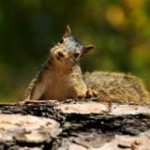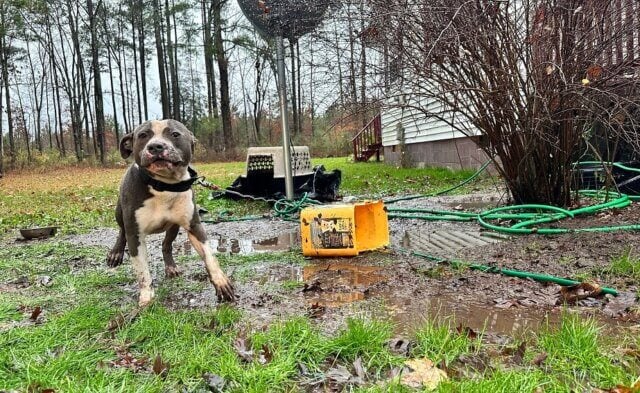Most of us share our homes with animals, so we know that they provide us with companionship, teach us how to love unconditionally and help us enjoy the outdoors and get more exercise. But wild animals also quietly provide us with many other benefits that we rarely notice. As we count our blessings this Thanksgiving, let’s pause to consider the other species who share our planet and the many ways that they make our lives better.
Oysters, clams and mussels clean up the ocean. As these industrious little bivalves suck in ocean water to feed on bacteria and phytoplankton, they also ingest pollutants and other harmful chemicals and send the filtered water back into the sea.
Dolphins are do-gooders. Pods of wild dolphins are a breathtaking sight―and they can also be a lifesaving one. There have been dozens of reports of humans and dogs who were rescued from drowning by dolphins. Scientists believe that since dolphins are smart, altruistic animals, they can recognize when other species are in danger and will work to save them.
Beavers are dam handy. By helping to regulate waterways with their dams, busy beavers help prevent floods and droughts and lessen the damage done by forest fires.
You’d be nuts not to respect squirrels. Trees and plants can rely on squirrels to help them reproduce. As squirrels bury nuts and seeds to stockpile for winter, they sometimes forget where some of them are buried. Thus, the nuts and seeds germinate, growing new trees and plants and sustaining a healthy ecosystem.
Sharks deserve a fair shake. Their strong immune system allows them to eat weak, old and sick fish, which prevents disease from spreading among sea life and also keeps the oceans healthy.
Ants have contributed to aviation and made flying more pleasant. Have you been on a flight that offered open seating? Thank ants. To determine the most efficient way to get all passengers on board, one airline studied highly organized ant colonies, which demonstrated the ant equivalent of open seating.
Birds are talented recyclers. They repurpose our trash, especially items such as string and paperclips, as they build their nests. Male bowerbirds in Australia are particularly fond of picking up pieces of brightly colored plastic to build their “bowers,” arched walkways that are beautifully decorated in order to attract females.
Wild horses protect the plains. Their digestive tract can’t break down seeds, so when they eat plants and then continue to roam, they deposit whole seeds on the ground in their feces. Later, the seeds germinate and keep plant populations strong. Wild horses also help other animals survive the winter. When water sources freeze, horses break the ice with their hooves, providing smaller animals with the opportunity to drink.
Bats deserve a big pat on the back. Little brown bats can eat more than 600 mosquitoes in one hour. And if that’s not enough to make bats your favorite animal, consider this: Bats also pollinate Agave tequilana, the plant that gives us tequila.
Moles win the garden club award. Many gardeners value skunks, raccoons, moles and other animals because the small holes that they dig in lawns and gardens when in search of grubs aerate the soil. These animals also eat the grubs who would otherwise prey on a gardener’s plants.
Animals improve our lives every day in countless important but little-known ways. Perhaps it’s time that we thanked and repaid them—simply by letting them live undisturbed and free.





